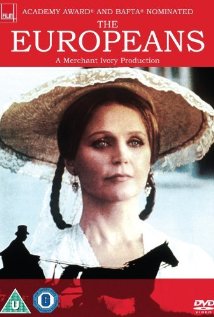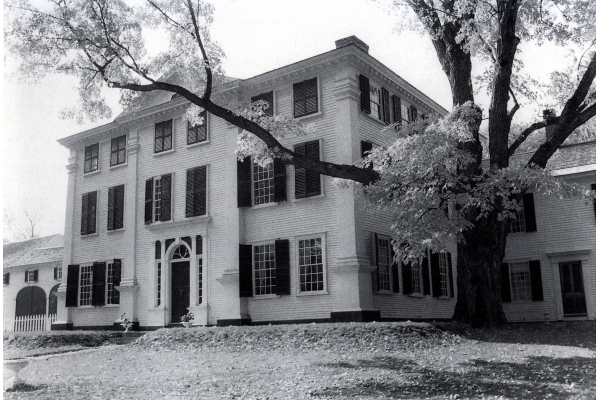
The Europeans
1979/U.S., 89 minutes
- Music: Richard Robbins
- Art Direction: Jeremiah Rusconi
- Director: James Ivory
- Producer: Ismail Merchant
- Screen Writer: Ruth Prawer Jhabvala
- Author (Based On): Henry James
- Casting Director: Judy Abbott
- Editor: Humphrey Dixon
- Costume Designer: Jusy Moorcroft
- Photographer: Larry Pizer
- More
The first of Merchant Ivory's triptych of Henry James adaptations (including The Bostonians in 1984 and The Golden Bowl in 2001), The Europeans is the story of an encounter between a family of pre-Civil War New Englanders and their European relations whose alien, sophisticated ways dazzle some family members and scandalize others. The Baroness Eugenia Muenster (Lee Remick) arrives with her artistic and dashing brother Felix (Tim Woodward) for a transatlantic visit with their cousins, the Wentworths. The bohemian Felix is immediately taken with Gertrude Wentworth (Lisa Eichhorn), James's "innocent Sabbath-breaker," who is being courted by the earnest but tiresome Puritan suitor Mr. Brand (Norman Snow). Eugenia fixes upon the reserved and attractive Robert Acton (Robin Ellis), who is torn between his captivation with the Baroness and his distrust of her European worldliness. The resulting conflicts and complications in the Wentworth and Acton houses come to play out James's vision of America trying to maintain her innocence by fending off European influences. The characters must somehow forge relationships and identities somewhere between the grave sobriety of Puritan acseticism, its "thousand different ways to be dreary," and the perceived amoral or outright immoral decadence of the Continent. The widely acclaimed performances, led by Remick's complex Eugenia, lend subtle sympathy to the characters. They are enabled by Ruth Prawer Jhabvala's screenplay, which never betrays James's wit or delicate command of social subtext. Ivory gives a sense of lyrical simplicity to his scenes in the New England interiors of the period, but perhaps most striking are his exteriors, which capture Henry James's sense of ambivalent wonder at the New World. The expatriate author of The Europeans was fascinated by the New England landscape, which he called "Arcadian" and "idyllic" but also depicted as a "void" and a "vacancy." The film's setting amidst the striking reds and oranges of the New England autumn gives us a sense of a place that is both edenic and unfulfilled - - a world in advent, people waiting for something.
Cast
- Gedda PetryAugustine
- Norman SnowMr. Brand
- Helen StenborgMrs. Acton
- Kristan GriffithLizzie Acton
- Tim ChoateClifford Wentworth
- Nancy NewCharlotte Wentworth
- Lisa EichhornGertrude Wentworth
- Wesley AddyMr Wentworth
- Tim WoodwardFelix
- Robin EllisRobert Acton
- Lee RemickEugenia, Baroness Muenster
Crew
- Music: Richard Robbins
- Art Direction: Jeremiah Rusconi
- Director: James Ivory
- Producer: Ismail Merchant
- Screen Writer: Ruth Prawer Jhabvala
- Author (Based On): Henry James
- Casting Director: Judy Abbott
- Editor: Humphrey Dixon
- Costume Designer: Jusy Moorcroft
- Photographer: Larry Pizer




















Director’s Comments
The Europeans was the first of Merchant Ivory's period adaptations that could be called "state-of-the-art" in its approach to the film's look, and it was characteristic of all the rest to come. Most of the talented, highly disciplined, and extremely knowledgeable crew who were in the wardrobe and hairdressing and makeup departments were English, and like the late Judy Moorcroft, the film's costume designer, had been trained at the BBC. The art department of The Europeans was, however, headed by an American, Jeremiah Rusconi, who had never worked on a film before. But whether English or American, all these artists had long previously steeped themselves in the Victorian past by way of old photographs, paintings, and extant evidence -- had taken almost an archaelogical, or a scientifically detached approach to the film's overall design, which made it stand out at a time when most period films -- particularly ones made in America -- looked pretty sloppy. For instance, in this film the actresses, as a matter of course, were required to be tightly laced up into corsets with stays (which made them stand, walk, and sit right), and were not allowed to fiddle with their own makeup, or to surreptitiously put on lipstick or eye shadow, etc. or dictate how their hair would be dressed (when it came to our twenties films, the rule was reversed: no brassieres and lots of makeup). I heard the costume designer and hairdressers collaboratively discussing "the line" -- that all-important silhouette that ran from the top of an actor's (or actress's) correctly coiffed head, to the tips of his (or her) shoes, which defined the historical period exactly to within a year or two. Judy Moorcroft was subsequently nominated for an Oscar for her work on The Europeans, and Rusconi was nominated for a BAFTRA award, the British equivalent of the Oscar. It was these two artists who laid the foundation, as it were, of Merchant Ivory's "production values" in the re-creation of the past.